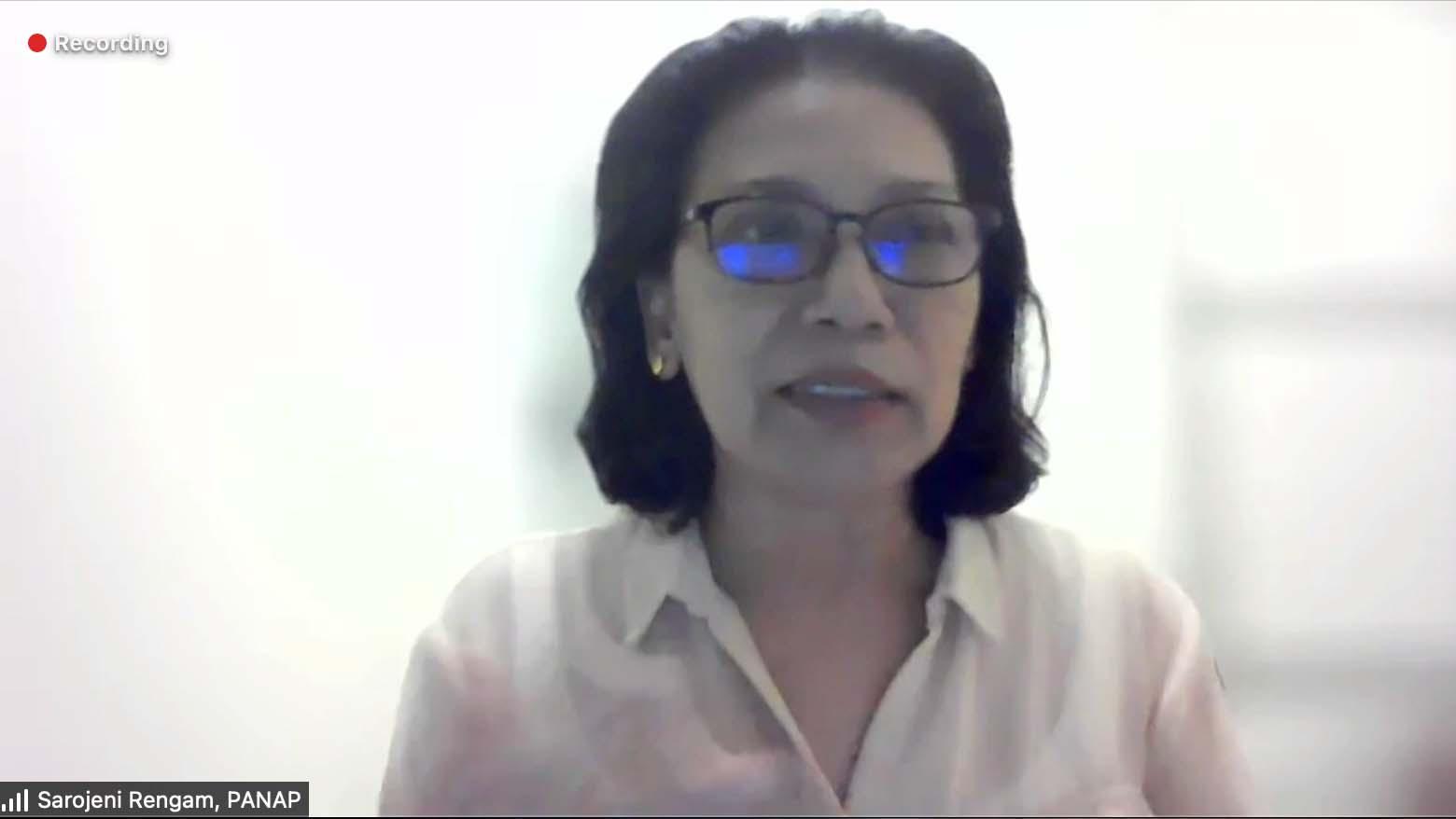PAN Asia Pacific (PANAP) is participating in the resumed fifth session of the United Nations Environment Assembly (UNEA 5), taking place online and in Nairobi from February 22 until March 2 with the theme “Strengthening Actions for Nature to Achieve the Sustainable Development Goals.”
Hosted by the UN Environment Programme (UNEP), UNEA brings together UN Member States, businesses, civil society and other stakeholders to agree on policies to address the world’s most pressing environmental challenges.
Below is the statement of PANAP’s Sarojeni Rengam, Regional Facilitator from Asia Pacific, on the UNEA draft resolution on the Sound Management of Chemicals and Waste being discussed now during the Open-Ended Committee on Permanent Representatives OECPR prior to the UNEA5:

Thank you, Madame Chair for this opportunity to share this general statement.
Sarojeni Rengam on behalf of Regional Facilitator MGS (Major Groups Modalities) for Asia Pacific and PANAP welcomes the draft UNEA resolution on the sound management of chemical and waste. UNEA 3 expressed sufficient concern about pesticides to request from UNEP a report on their adverse impacts of human health and the environment. This report was made available in 2021, Summary for Policy Makers, which notes that “about 385 million cases of non-fatal unintentional pesticide poisonings have been estimated to occur every year, with approximately 11,000 deaths.”
That is an estimated 44% of global farmers and farmworkers being poisoned every year, with the figure rising to 51% in South East Asia and 64.75% in South Asia. Of the 11,000 deaths referred to above, about 7,000 occur in South Asia. These figures are all for unintentional acute pesticide poisoning; add to this the 1 to 2 million cases of self-poisoning, which again occur mainly in South and South East Asia.
The draft resolution urges all Member States and other stakeholders to take further action to reduce or eliminate the risks associated with these issues of concern, which includes the use of Highly Hazardous Pesticides (HHPs). We feel that the impact of the HHPs is too urgent, and so we urge strong leadership from our governments in bringing about “fundamental change” in the issue of Highly Hazardous Pesticides. This is so vitally necessary, given the ongoing pesticide poisoning and contamination of the environment. We would like to suggest a more concerted effort on pesticides. Maybe we could consider continuing more discussions on this issue of concern to review options to reduce the risk to human health and the environment of pesticides, including the phase-out of these pesticides.
For more information on the call for a global mechanism for the life-cycle management of pesticides, see Towards Strong Actions to Phase-Out Highly Hazardous Pesticides, PANAP’s input to the 2021 Global Major Groups and Stakeholders Forum prior to the first session of UNEA 5.








Discussion about this post